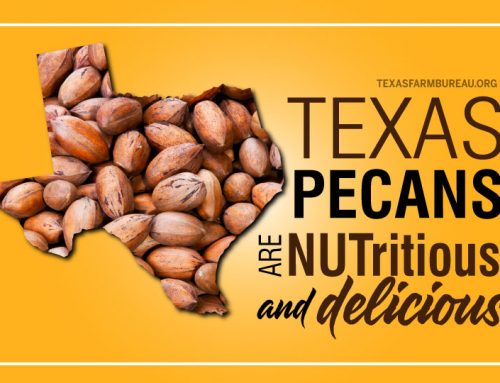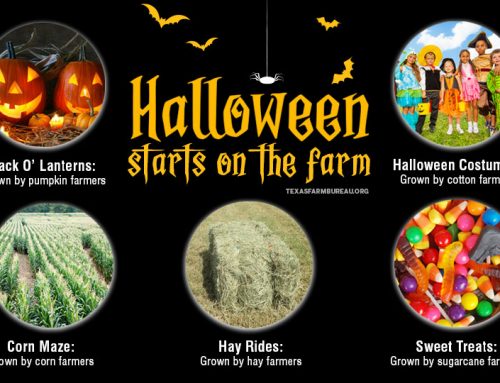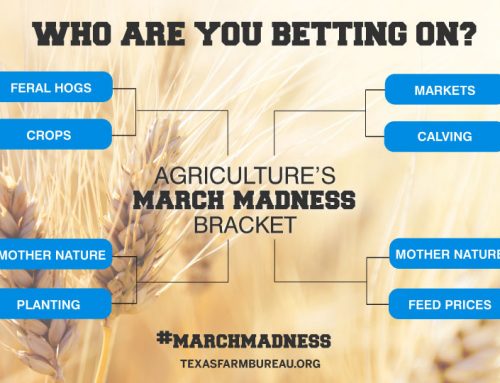By Nathan Smith
Calling all nuts out there—pecan nuts, that is.
Pecans always remind me of my grandfather, who used to sit on his porch swing, sheller in hand, passing them out to his grandchildren running by. He talked about what to look for in a ripe pecan and taught us tricks to cracking them with our hands.
Like many Texans, his favorite holiday foods included pecans and here we are in the middle of another holiday season. It’s also the peak time for Texas pecans.
If you enjoy pecans like I do, you’ve likely discovered we’re paying more this year for the fruit of our state tree.
Like many vegetable growers and animal caretakers, pecan farmers are feeling pain from the epic Texas drought. Add growing demand for our great Texas pecans in China, and you might have more invested in your grandmother’s pecan pie recipe this year than last year.
Pecans, like many nuts grown in Texas, can be found in all varieties—whole, shelled, natural, organic, roasted, caramelized and salted. Even with lower harvest numbers this year, we still have an abundance of choices in local grocery stores across the state.
Some growers in San Saba County–one of the largest pecan-growing areas of the Lone Star State–sell their product directly from their orchards and give their customers a look at the process, too. As you gather supplies for holiday treats and gifts, I encourage you to do a little research and locate a grower near you.
Like other farmers, pecan growers nurture trees to maturity and protect them against pests and damaging weather. There is nothing like standing in a fully mature Texas pecan orchard!
This Texas delicacy is in shorter supply this year, but I’d like to share some great facts about the nut even my grandad didn’t know:
- Pecans contain more than 19 vitamins and minerals, including: vitamin A, vitamin E, folic acid, calcium, magnesium, potassium, phosphorus and zinc.
- One ounce of pecans contains 10 percent of the recommended amount of daily fiber.
- Pecans rank among the top foods containing high antioxidant capacity.
- They may decrease the risk of cancer, coronary heart disease and neurological diseases like Alzheimer’s.
- The U.S produces at least 80 percent of the world’s pecans. Texas averages 60 million pounds each year.
- Last year, the U.S. crop was 259.7 million pounds, worth an estimated $556 million.
While pecans may lag behind peanuts during baseball season, not even Mr. Peanut can replace Texas pecans during Christmas. Whether you buy them in the grocery stores or straight from the orchard, think about adding pecans to your holiday celebration.
If you have a favorite pecan dish, tell us about it in the comment box below!











Leave A Comment